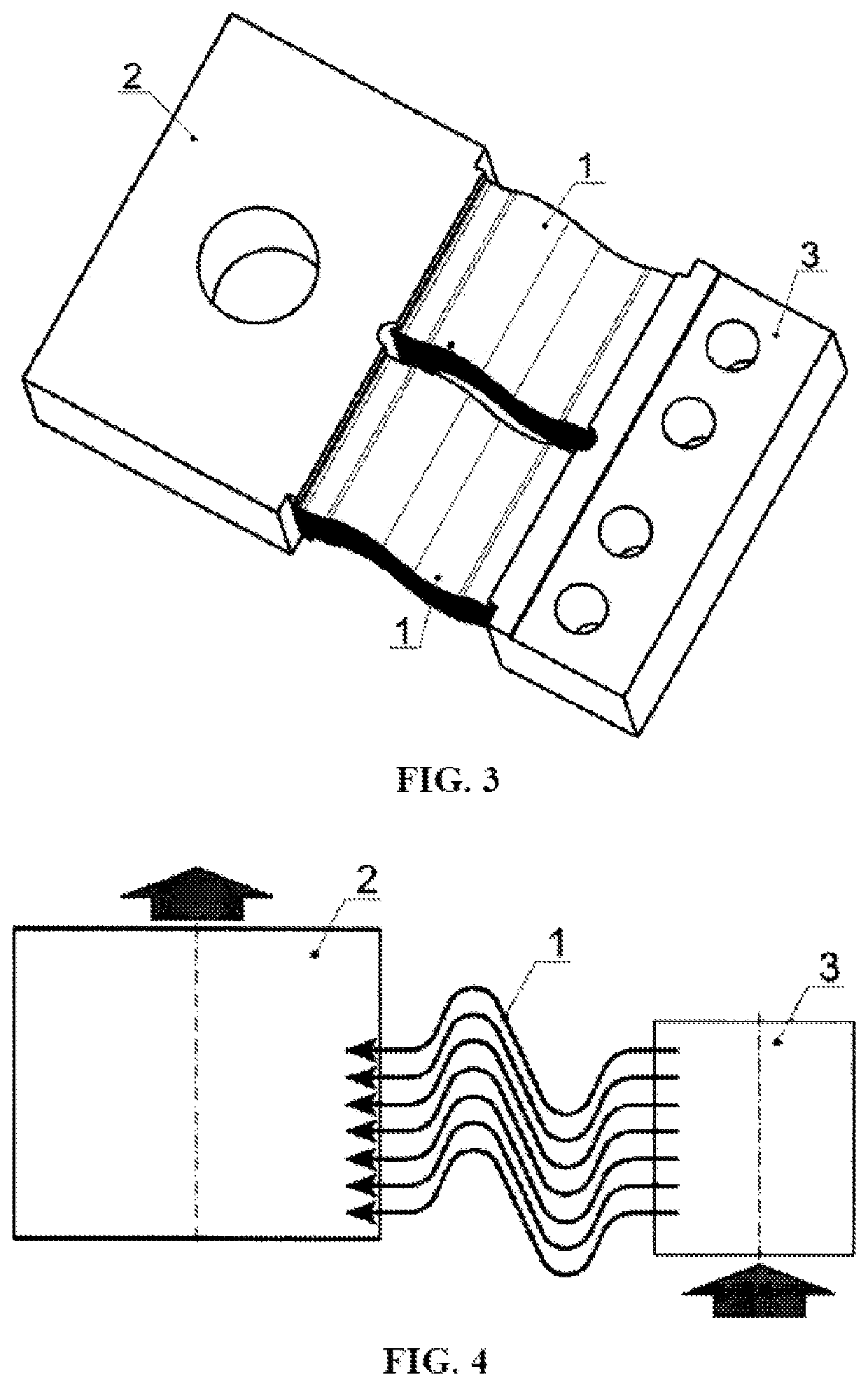Device for electrically connecting a blanket module to a vacuum vessel of a thermonuclear reactor
a blanket module and vacuum vessel technology, applied in nuclear reactors, greenhouse gas reduction, nuclear engineering, etc., can solve the problems of insufficient conformity of the stack of electrically conductive plates in the normal plane of the side parts, limited current loading capacity, and higher electromagnetic forces acting on the device, so as to reduce attractive forces, reduce the uneven current distribution of skin effects, and increase the loading capacity of the device
- Summary
- Abstract
- Description
- Claims
- Application Information
AI Technical Summary
Benefits of technology
Problems solved by technology
Method used
Image
Examples
Embodiment Construction
[0018]A device for electrically connecting components situated inside a nuclear fusion reactor chamber to a vacuum vessel of the reactor comprises two identical stacks of electrically conductive plates 1 and flanges 2, 3 for attachment to a vacuum vessel 4 and a component 5 situated inside a chamber, respectively. Said stacks of electrically conductive plates are mounted with mirror symmetry about a line that passes through the centers of symmetry of the flanges 2, 3. The electrically conductive plates 1 are in the shape of a symmetrical wave having at least one full period. Based on the layout needs, surfaces of the electrically conductive plates 1 can be in the shape of a symmetrical wave having more than one full period. In each stack, the electrically conductive plates 1 are nested one inside another by means of tongues and corresponding slots and jointed to the flanges 2, 3 for attachment to the component 4 situated inside the chamber and the vacuum vessel 5, for instance, by m...
PUM
 Login to View More
Login to View More Abstract
Description
Claims
Application Information
 Login to View More
Login to View More - R&D
- Intellectual Property
- Life Sciences
- Materials
- Tech Scout
- Unparalleled Data Quality
- Higher Quality Content
- 60% Fewer Hallucinations
Browse by: Latest US Patents, China's latest patents, Technical Efficacy Thesaurus, Application Domain, Technology Topic, Popular Technical Reports.
© 2025 PatSnap. All rights reserved.Legal|Privacy policy|Modern Slavery Act Transparency Statement|Sitemap|About US| Contact US: help@patsnap.com


